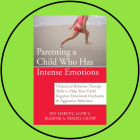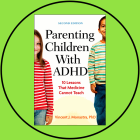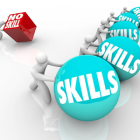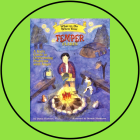Tag Archives:ANGER MANAGEMENT
Parenting a Child Who Has Intense Emotions: Dialectical Behavior Therapy Skills to Help Your Child Regulate Emotional Outbursts and Aggressive Behaviors by Pat Harvey, ACSW, LCSW-C share
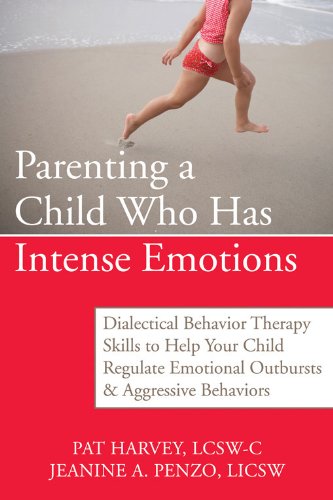 A truly insightful book that helps parents to step out of the power struggles that we adults can so easily find ourselves in with children and teens who experience emotions in a big way. Kids who seem to blow-up over nothing, struggle with transitions, seem to be constantly challenging adult authority, or be intent on badgering you into submission for whatever they want are actually really struggling. They don’t like feeling out of control like this but don’t yet have the skills they need to calm themselves down, to soothe themselves, and to handle things in a calmer manner.
A truly insightful book that helps parents to step out of the power struggles that we adults can so easily find ourselves in with children and teens who experience emotions in a big way. Kids who seem to blow-up over nothing, struggle with transitions, seem to be constantly challenging adult authority, or be intent on badgering you into submission for whatever they want are actually really struggling. They don’t like feeling out of control like this but don’t yet have the skills they need to calm themselves down, to soothe themselves, and to handle things in a calmer manner.
Often our first impulse as parent is to come down harder on these kids, grappling with the feeling that we have lost control of a situation that we “should” be in control of and trying to re-establish a sense authority. We put a great deal of pressure on ourselves to fix the problem and this stress makes us even more likely to lose our temper. We find ourselves reacting in ways that we never would have imagined back in the days when having a child was a dream and not yet reality. We wonder, “How have I come to be a person who yells, physically intimidates, or even possibly gets into physical altercations with my kid?” We think, “I have punished them with every consequence I can think of and nothing works!” We worry, “How is all of this conflict affecting our other children?” and “What will become of my child if we don’t get this turned around?”
The reality is that these kids respond VERY poorly to attempts to dominate them and punish them into compliance and it only serves to escalate the arguments and tension in the household while, at the same time, make them feel worse about themselves. Secondary problems can crop up like depression and suicidal thoughts.
What else is there to do? Based firmly in scientific research, this book helps parents understand the emotional struggles that kids like this are grappling with and how miserable they really feel when their emotions are out of control. It helps you find ways to show your child or teen that you love them, understand that they are struggling, and gradually teach them coping strategies that can help them to regulate their emotions. Additionally, it helps parents to set limits and expectations that are realistic and even therapeutic. If you have been reading this review and have been brought to tears by how much this describes your life with your child, I truly can’t recommend this book enough.
I would also like to add a message of hope. Kids and adults who tend to experience their emotions very intensely also have many strengths and can “use their powers for good.” These are folks who are passionate and tenacious. They are artistic. They feel the pain of other’s deeply and care about making positive changes in the world. When they learn to harness their feelings constructively and focus their energies on projects that interest them, the things that they are capable of is incredible! Looking through the “lens” of the medical model, labels/diagnoses that are often connected to these types of kids are: ADHD, ODD, Asperger’s, Bi-Polar Disorder, and Borderline Personality Disorder. I caution you to only lean on labels like this for what they can do for you. Often labels like this cause harm because some people take it to mean that something is “wrong” with them; that they are “broken.” I don’t think this is a helpful or healthy perspective. You can read more of my thoughts on this here.
So, if you are struggling with a child who has intense emotions, get this book. Also, I urge you to strongly consider finding a therapist (or two) who has experience working with children/teens AND who has experience using the theoretical framework this book is based on, DBT (Dialectical Behavior Therapy). This is a tough road to go alone for both the child and the parent. If you are at your wit’s end, it can also help a great deal for you (together with other parental figures in the home) to have your own therapist to guide you though the process, helping to shift your approach with your child to one that teaches emotion regulation instead of constantly doing battle with them. Ideally, signing release forms so the two therapists can coordinate the work they do with your family will help the process to be as effective and efficient as possible.
PS – You may also want to check out this video, Teen extremes: Regulating Moods in the Age of Anxiety, as it based on the DBT concepts described in the book and presented by Dr. Marsha Linehan, the actual psychologist who developed DBT.
* I don’t make any money from the books that I recommend. My reviews are solely based on wanting to let people know what’s out there and could be helpful to them.
Parenting Children with ADHD: 10 Lessons That Medication Can’t Teach by Vincent J. Monastra, PhD share
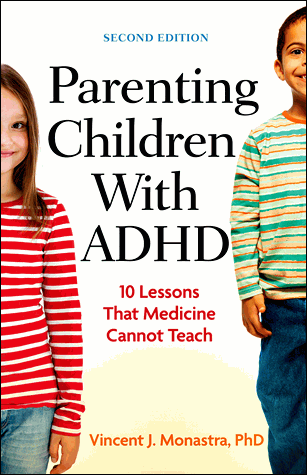 Written by a psychologist who has lots of experience working with kids with ADHD, this is an easy-to-read book that is broken down into short chapters giving a nice overview of ADHD and explaining things that are important for kids with these issues that doesn’t involve medication. Also, it’s not that Dr. Monastra is anti-medication, it’s just that his experience (and scientific research) has shown that there are additional/other interventions that can be helpful for kids (and adults!) with ADHD. Basically, medication alone is not enough. He talks about things like diagnosis, the role of medication and what it can and can’t do, how to work with the school to support your child’s success, developing emotional control, and giving yourself a break as a parent.
Written by a psychologist who has lots of experience working with kids with ADHD, this is an easy-to-read book that is broken down into short chapters giving a nice overview of ADHD and explaining things that are important for kids with these issues that doesn’t involve medication. Also, it’s not that Dr. Monastra is anti-medication, it’s just that his experience (and scientific research) has shown that there are additional/other interventions that can be helpful for kids (and adults!) with ADHD. Basically, medication alone is not enough. He talks about things like diagnosis, the role of medication and what it can and can’t do, how to work with the school to support your child’s success, developing emotional control, and giving yourself a break as a parent.
Excerpt from the publisher’s summary: “Kids with ADHD need to be loved and shown how to become successful adults. Unfortunately, their lack of attention and restlessness often get in the way. Parents of these kids try so hard to stay connected and remain patient in the face of daily frustration. However, it is an incredible challenge to remain positive and involved when your child does not respond to the kinds of strategies that work for other children. Without guidance and systematic treatment, these bright, inquisitive children are unlikely to graduate from high school, are more prone to use illegal drugs, and struggle to maintain employment as adults.”
Note: I have the 2005 version. In writing this post I see that there is a 2014 version. So I don’t know what has changed between the two.
* I don’t make any money from the books that I recommend. My reviews are solely based on wanting to let people know what’s out there and could be helpful to them.
Emotionally Intelligent Life Skills share
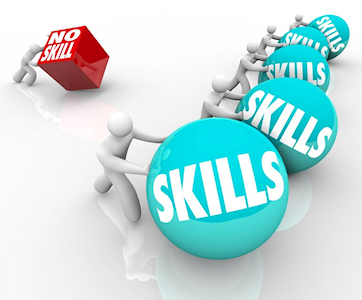 There are several types of skills that are worth working on because, as we all get better at them, they help us have less conflict and difficulty in our lives and increase the possibility that other people understand our thoughts and feelings. And the more often that happens, the more likely we are to experience our day to day life as happy. For example, Executive Functioning Skills help us to be organized so that we take care of the things we need to and help us to feel more responsible and in control of our lives. Mindfulness Skills help us to find pleasures in the small moments in life that are happening around us all of the time. They help us worry less and be happy more. Relaxation Skills, mindfulness being one of them, help us to calm anger and reduce panic and worry. Social Skills help us to work well in groups, create/deepen/maintain friendships and loving relationships, and increase the chances of other people having good/comfortable thoughts about us. Anger Management and Conflict Resolution Skills help us to not let our emotions create bigger problems for us than we already have and help us to solve problems in ways that encourage people to have good/comfortable thoughts about us.
There are several types of skills that are worth working on because, as we all get better at them, they help us have less conflict and difficulty in our lives and increase the possibility that other people understand our thoughts and feelings. And the more often that happens, the more likely we are to experience our day to day life as happy. For example, Executive Functioning Skills help us to be organized so that we take care of the things we need to and help us to feel more responsible and in control of our lives. Mindfulness Skills help us to find pleasures in the small moments in life that are happening around us all of the time. They help us worry less and be happy more. Relaxation Skills, mindfulness being one of them, help us to calm anger and reduce panic and worry. Social Skills help us to work well in groups, create/deepen/maintain friendships and loving relationships, and increase the chances of other people having good/comfortable thoughts about us. Anger Management and Conflict Resolution Skills help us to not let our emotions create bigger problems for us than we already have and help us to solve problems in ways that encourage people to have good/comfortable thoughts about us.
These are all skills that we start to learn as kids but that we continue to hone as adults. And, just like working out makes your muscles strong and makes it easier to do physical things , the more we practice these valuable life skills the stronger our life skills become and the easier it is to positively manage emotional things. Study after study shows that creating habits by practicing something over and over again reinforces neural pathways in our brains and results in “habits.” This means that the more we practice and flex our emotional muscles, the easier these skills become for us. So get out there and learn some new skills or just keep practicing the ones that you have already learned about. It pays off!!
What to Do When Your TEMPER FLARES by Dawn Huebner, PhD share
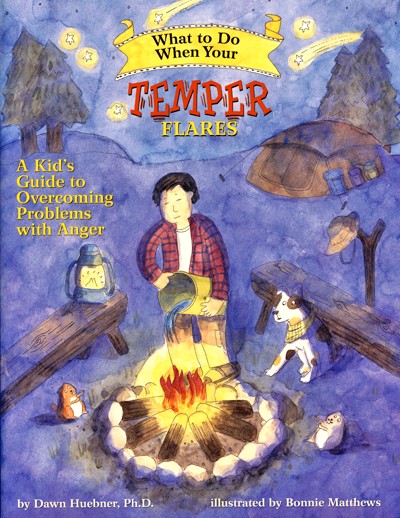 This is a fabulous workbook for kids. The book suggests using it from ages 6-12 but I think that is a loose guide and depends on the mindset of the child as well as their ability to understand that other people’s thoughts can be different than their own. Using fire as a metaphor for anger, the words and pictures then walk the reader through several different skills and approaches that can help a person develop a “longer fuse.” Explanations are concrete, using visual metaphors and practice to help increase skills that are very effective in managing anger. The author teaches, among other things, how our inner thoughts can affect our feelings and that if we work to adjust our thinking and give situations more of the benefit of the doubt,
This is a fabulous workbook for kids. The book suggests using it from ages 6-12 but I think that is a loose guide and depends on the mindset of the child as well as their ability to understand that other people’s thoughts can be different than their own. Using fire as a metaphor for anger, the words and pictures then walk the reader through several different skills and approaches that can help a person develop a “longer fuse.” Explanations are concrete, using visual metaphors and practice to help increase skills that are very effective in managing anger. The author teaches, among other things, how our inner thoughts can affect our feelings and that if we work to adjust our thinking and give situations more of the benefit of the doubt,
I use this book in session with some of my clients. Parents can also use this on their own with their kids and there is an introduction in the beginning of the book to help guide parents through how to approach it. With a positive, supportive approach you can really deepen your relationship with your child by being a resource that can help him or her to work through these challenges.
* I don’t make any money from the books that I recommend. My reviews are solely based on wanting to let people know what’s out there and could be helpful to them.

